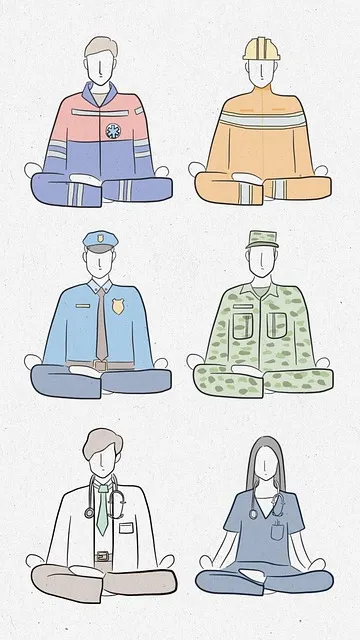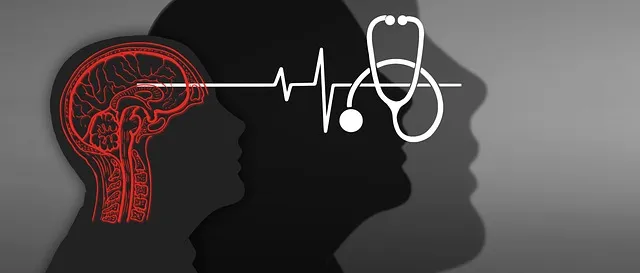Kaiser Denver's community outreach programs are transforming mental health access for underserved populations by directly engaging communities, combating stigma, and offering tailored workshops. To design effective initiatives, research local needs, engage stakeholders, and adapt strategies using diverse digital platforms. Partnering with local institutions and incorporating culturally sensitive practices improves engagement. Measuring success through clear metrics like emotional healing and mental well-being changes demonstrates the impact on the community, highlighting how to get mental health services through Kaiser Denver.
Community outreach programs play a pivotal role in expanding access to mental health services, especially for underserved populations. This article explores the implementation of such initiatives by Kaiser Denver, focusing on strategies to bridge the gap in mental healthcare. We delve into the significance of community engagement, effective planning, and tailored approaches to reach targeted communities. Additionally, it discusses measuring success through impact evaluation, providing insights on how Kaiser Denver enhances mental health support for all. Discover practical steps on how to get mental health services through Kaiser Denver’s outreach initiatives.
- Understanding Community Outreach: Why It Matters for Mental Health Access
- Planning and Designing Effective Kaiser Denver Outreach Programs
- Strategies to Engage and Reach Target Communities
- Measuring Success: Evaluating the Impact of Community Mental Health Services
Understanding Community Outreach: Why It Matters for Mental Health Access

Community outreach programs play a pivotal role in enhancing mental health access and accessibility, especially for underserved populations. By reaching out to communities directly, organizations like Kaiser Denver can bridge the gap between individuals struggling with mental illness and the support they need. This approach is crucial in addressing the Mental Illness Stigma Reduction Efforts, as it fosters an environment of understanding and encourages people to seek help without fear of judgment.
Implementing such programs involves tailored strategies to meet diverse community needs. For instance, workshops focused on Stress Management and Confidence Boosting can empower individuals with practical tools to navigate mental health challenges. Through these initiatives, Kaiser Denver can ensure that the services they offer are inclusive and effectively reach those who might otherwise face barriers in accessing mental healthcare, including individuals living in remote areas or facing social and economic disparities.
Planning and Designing Effective Kaiser Denver Outreach Programs

When designing effective community outreach programs for Kaiser Denver, it’s crucial to start with a clear understanding of the local mental health needs and existing resources. This involves conducting thorough research on the demographic composition, cultural considerations, and specific challenges faced by the community. By engaging with local stakeholders, healthcare professionals, and community leaders, Kaiser Denver can identify gaps in services and develop targeted initiatives. For instance, creating a Mental Wellness Podcast Series Production tailored to the region’s unique needs can enhance accessibility of mental health information and support.
A well-planned strategy should incorporate resilience-building workshops, burnout prevention programs, and other engaging activities that resonate with the community. Leveraging digital platforms and incorporating diverse communication channels ensures how to get mental health services through Kaiser Denver reaches a broader audience, especially those who may be hesitant to seek traditional care. Regularly evaluating program effectiveness and adapting based on feedback fosters continuous improvement, ultimately contributing to the overall well-being of the community.
Strategies to Engage and Reach Target Communities

Reaching and engaging target communities for mental health initiatives requires a strategic and nuanced approach, especially when navigating diverse populations with varying needs. One effective strategy is to utilize existing community resources and leaders who have strong connections and trust within specific neighborhoods. By partnering with local churches, schools, or community centers in Denver, Kaiser can facilitate access to mental health services through these established networks. Hosting informational sessions, workshops, and events at such venues allows for increased visibility and encourages attendance from individuals who might be hesitant to seek help.
Additionally, incorporating self-awareness exercises and Mind Over Matter principles tailored to different cultural backgrounds can foster a sense of comfort and understanding. Cultural sensitivity in mental healthcare practice is paramount, ensuring that services are accessible and appealing to diverse communities. These strategies, combined with community outreach programs, can significantly improve how to get mental health services through Kaiser Denver, leading to better engagement and overall well-being for all residents.
Measuring Success: Evaluating the Impact of Community Mental Health Services

Measuring success is a vital aspect of evaluating the impact and effectiveness of community mental health services. When implementing programs like those offered by Kaiser Denver, it’s essential to establish clear metrics to assess how well these initiatives are reaching and supporting the community. One way to gauge progress is by tracking improvements in participants’ emotional healing processes. This can be achieved through pre-and post-program surveys, interviews, or focus groups that explore their experiences and perceived benefits. By quantifying changes in symptoms of anxiety, depression, and overall mental well-being, organizers can demonstrate the tangible impact of these services.
Furthermore, evaluating the success of community outreach programs should involve examining their role in depression prevention and fostering compassion cultivation practices. This can be done by analyzing trends in local mental health statistics, such as rates of hospital admissions for psychiatric disorders or emergency room visits related to mental health crises. By comparing these figures before and after program implementation, it becomes possible to show how these initiatives contribute to a healthier, more resilient community.
Community outreach programs, as demonstrated through Kaiser Denver’s initiatives, are a powerful tool to enhance mental health access. By understanding the unique needs of diverse communities and employing strategic engagement methods, organizations like Kaiser can significantly improve the availability and quality of mental health services. Measuring success through rigorous evaluation ensures these programs remain effective and adaptable, ultimately fostering better outcomes for individuals seeking support. Implementing these strategies can revolutionize how people in need access mental health care, especially in underserved areas.






